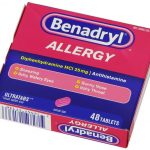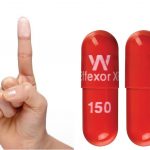How to Come Off Venlafaxine Successfully

What is Venlafaxine?
Venlafaxine is a medication used to treat depression. Venlafaxine extended-release (long-acting) capsules are also used to treat generalized anxiety disorder (GAD; excessive worrying that is difficult to control), social anxiety disorder (extreme fear of interacting with others or performing in front of others that interferes with normal life), and panic disorder (sudden, unexpected attacks of extreme fear and worry about these attacks).
Venlafaxine belongs to a class of antidepressant drugs called serotonin-norepinephrine reuptake inhibitors (SNRIs). A class of drugs is a group of medications that work in a similar way. These drugs are often used to treat similar conditions.
SNRIs work by increasing the levels of substances called serotonin and norepinephrine in your brain. Having more serotonin and norepinephrine in your brain can improve your symptoms of depression and anxiety.
How Long Does It Take For Venlafaxine To Work?
Sleep, energy, or appetite may show some improvement within the first 1-2 weeks. Improvement in these physical symptoms can be an important early signal that the medication is working. Depressed mood and lack of interest in activities may need up to 6-8 weeks to fully improve.
How is Venlafaxine used?
Venlafaxine comes as a tablet or extended-release capsule to take by mouth. The tablet is usually taken two or three times a day with food. The extended-release capsule is usually taken once daily in the morning or evening with food. Take venlafaxine at around the same time(s) every day.
Follow the directions on your prescription label carefully, and ask your doctor or pharmacist to explain any part you do not understand. Take venlafaxine exactly as directed. Do not take more or less of it or take it more often or for a longer period of time than prescribed by your doctor.
Swallow the extended-release capsule whole; do not split, chew, crush it, or place it in water. If you cannot swallow the extended-release capsule, you may carefully open the capsule and sprinkle the entire contents on a spoonful of applesauce. Swallow (without chewing) this mixture immediately after preparation and then drink a glass of water to make sure that you have swallowed all of the medication.
Your doctor will probably start you on a low dose of venlafaxine and gradually increase your dose, not more often than once every 4 to 7 days. Tell your doctor how you are feeling during your treatment so that your doctor can adjust your dose properly.
Venlafaxine controls depression but does not cure it. It may take several weeks or longer for you to feel the full benefit of this medication. Continue to take venlafaxine even if you feel well. Do not stop taking venlafaxine without talking to your doctor. Your doctor will probably decrease your dose gradually. If you suddenly stop taking venlafaxine, you may experience withdrawal symptoms such as agitation; anxiety; tiredness; confusion; mood changes; headache; dizziness; irritability; frenzied or abnormal excitement; lack of coordination; trouble falling asleep or staying asleep; nightmares; nausea; vomiting; loss of appetite; diarrhea; dry mouth; sweating; uncontrollable shaking of a part of the body; ringing in the ears; blurred vision; seizures; or burning, tingling, numbness, or electric shock-like feelings in any part of the body. Tell your doctor if you experience any of these symptoms while you are decreasing your dose of venlafaxine or soon after you stop taking venlafaxine.
Who is likely to experience symptoms of Venlafaxine withdrawal?
Anyone can experience Venlafaxine withdrawal regardless of their dose of the drug, age, or medical history.
Like withdrawal symptoms associated with other antidepressants, Venlafaxine withdrawal symptoms can begin within a few hours of missing a dose or reducing the dose of the medication.
While Venlafaxine discontinuation symptoms are not entirely dependent on a patient’s dose of the medication, taking a higher dose of the drug may increase the likelihood of experiencing withdrawal symptoms after discontinuing the drug.
Patients who have been taking Venlafaxine for at least four weeks are considered to be at risk of experiencing antidepressant discontinuation withdrawal symptoms.
Once the body and brain have adapted to Venlafaxine, discontinuing or reducing the dose of the medication can cause withdrawal symptoms to appear quickly.
If you’ve been taking Venlafaxine for more than four weeks and plan to stop using the medication, it is recommended that you consult with a healthcare provider to discuss gradually reducing your dose of the drug in order to minimize your risk of experiencing withdrawal.
What are the symptoms of Venlafaxine withdrawal?
Venlafaxine withdrawal is commonly associated with sensory disturbances that may resemble electrical shocks or tingling sensations.
The feelings are sometimes described as “brain zaps” or “brain shivers,” and they may be experienced when a patient discontinues their use of Venlafaxine abruptly or misses a scheduled dose.
The feelings are short-lived but are often repetitive and may spread out from the brain to other parts of the body.
Some patients report that the feelings can be caused by eye movement.
Venlafaxine is associated with withdrawal symptoms that are commonly experienced when withdrawing from other antidepressants in the same class of drugs.
Common withdrawal symptoms of Venlafaxine include:
• Headache
• Nightmares or vivid dreams
• Impaired coordination and balance
• Problems with concentration
• Flu-like symptoms (fatigue, muscle pain, nausea)
• Anxiety or worsening depression
• Irritability
• Confusion
• Nausea
• Increased sweating
• Abnormal sensory disturbances
• Agitation
• Seizures
Tips On Coming Off Venlafaxine Successfully
If you wish to reduce your Venlafaxine dose or discontinue the medication entirely, talk to your doctor or medical professional.
If they give their approval, you can take action to reduce the chances of experiencing adverse effects.
Closely follow the taper dosage: Your healthcare can help you manage your withdrawal period by tapering your prescription to gently yet quickly decrease your dependence on the drug. Follow their instructions carefully. Failure to do so can lead to uncomfortable symptoms.
Try psychotherapy: Studies show that cognitive-behavioral therapy (CBT) or mindfulness-based cognitive therapy (MBCT) may help patients quit antidepressants without increasing the risk of relapse or new episodes of depression. Your healthcare provider may be able to refer you to therapists who are experienced in helping patients wean off of antidepressants.
Lifestyle changes: Implementing healthy lifestyle changes by getting regular physical activity, eating a healthy diet, sleeping well, and reducing stress may help you manage your mood and reduce your risk of developing symptoms of Venlafaxine withdrawal.
Over-the-counter medications: A few OTC medications may help remedy some symptoms of an antidepressant discontinuation syndrome:
• Pain relievers such as ibuprofen (Advil) and acetaminophen (Tylenol) can help manage body aches.
• Anti-nausea medication may help reduce GI discomfort.
• Sleep aids may help promote quality rest.
Keep in communication with your healthcare provider
Work with your doctor to create a discontinuation plan.
Then when you begin tapering your medication, contact them at any time if you experience withdrawal symptoms or need health advice or support.





